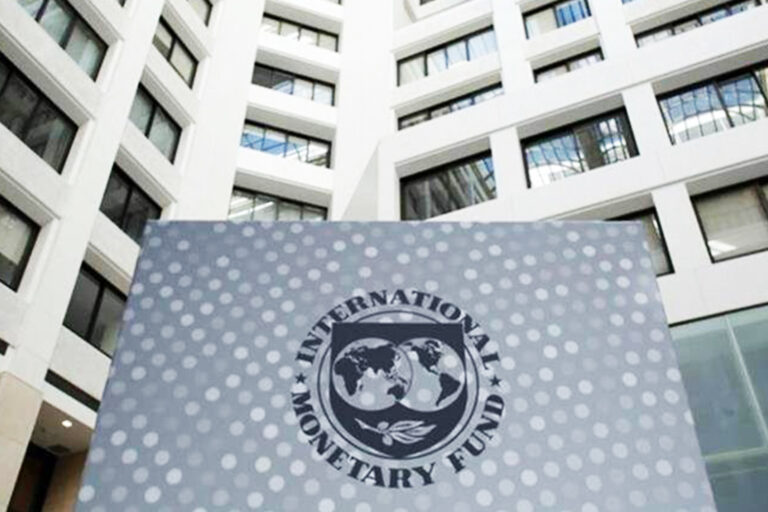The International Monetary Fund (IMF) urge Ethiopia to accelerate the birr depreciation; while the government said it will do that with caution. It has also urged the authorities to closely monitor the impact of COVID-19 on financial stability.
In its recently published COVID 19 related document, IMF provided further support to stabilize the balance of payment and push the debt service and said that the government needs to increase the pace of depreciation.
“Increasing the pace of depreciation would help reduce real overvaluation and act as a shock absorber during the crisis (COVID 19),” the IMF document said. It added that the authorities underscored continued commitment to closing the gap with the parallel rate to eventually move to a market-clearing exchange rate but signaled a need to continue moving with caution.
The document of IMF also stated that the government remains committed to the objectives of the Extended Credit Facility (ECF) and Extended Financing Facility (EFF) arrangements that have been supporting Ethiopia’s economic reform program since December 2019.
It added that while much of the focus in the near term will be on responding to the fallout of the crisis, the authorities underscored that they will continue to further the reform agenda.
“The government officials has highlighted their commitment to gradually ending financial repression by increasing T-bill issuances, ceasing new National Bank of Ethiopia (NBE) financing to the Development Bank of Ethiopia (DBE) in June, and gradually reducing direct NBE advances to the government,” it said.
“They also remain committed to implementing the FX roadmap to be finalized by end-April, which is last month, to lay the groundwork for an eventual move to a market-clearing exchange rate,” it added.
Ethiopia disclosed that it will arrange the exchange rate policy and indicated that the possibility of market based exchange rate might be introduced.
The fund has also recommended the government to closely follow the financial conditions at banks that they are getting some support from the central bank to stabilize their liquidity in related with the case of corona virus.
The central bank provided 15 billion birr (0.45 percent of GDP) for private banks few weeks ago and allowed them to access finance with 13 percent interest rate to solve their liquidity challenge. “The measure (providing the 15 billion birr) aimed at addressing tight liquidity conditions that had arisen prior to COVID-19 and aids banks in repaying some of the 1 month loans previously provided through the Individual Bank Lending Facility-introduced in February-for the same purpose,” IMF said.
The document said that NBE is also planning to extend 16 billion birr (0.5 percent of GDP) in liquidity to the Commercial Bank of Ethiopia (CBE), the stated owned financial enterprise. It said IMF supported the decision to build adequate liquidity buffers but emphasized the need to ensure that NBE lending to the CBE reflects the terms available to private banks and avoids implicit solvency support.
“NBE has appropriately provided liquidity to banks to maintain financial stability. Once the crisis abates, monetary policy will need to be tightened significantly to achieve the single-digit inflation objective. Strong efforts are needed to address the real overvaluation of the exchange rate, allowing the exchange rate to act as a shock absorber,” IMF said.
It said that the government is encouraging banks to reschedule loan repayments, currently on a case by- case basis, but have not changed loan classification rules and recommended close monitoring of liquidity positions, loan-to-deposit ratios, and asset quality. “In particular, there is an urgent need to step up monitoring of deposits and bank liquidity, as well as frequent supervisory review and reassessment of banks’ loan portfolios during the crisis,” it said.
It also emphasized the need to consider policy options to deal with potential further bank liquidity shortages, such as strengthening the framework for emergency lending and adjusting reserve requirements.
Regarding debt condition the fund elaborated that the joint World Bank–IMF Debt Sustainability Analysis (DSA) shows that debt is sustainable. “However, liquidity pressures to service external debt have increased, the room to absorb shocks is now smaller than at program approval due to lower export projections, and a large or more persistent impact of the COVID-19 shock than presently assumed could further worsen the outlook,” it said.
On the domestic front, public debt remains vulnerable to contingent liability shocks, including those stemming from public banks, it says “Despite severe losses due to COVID-19, Ethiopian Airlines intends to continue servicing its debt and does not have plans to seek government support.”
A week ago the IMF Executive Board has approved USD 411 million emergency assistance for Ethiopia under the Rapid Financing Instrument to support the country on the way to fight COVID 19.
The Board has also approved Ethiopia’s request for relief under the CCRT on debt service falling due to the IMF until October 13, 2020 of about USD 12 million. This relief could be extended up to April 13, 2022, subject to the availability of resources under the Catastrophe Containment and Relief Trust (CCRT).






